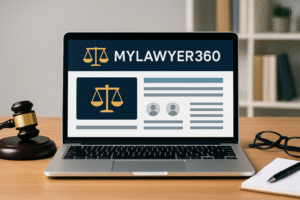The term “Dapper Development lawsuit” has recently gained significant attention across search engines and legal news platforms, yet many readers remain unclear about what it actually refers to. This confusion exists because the phrase does not refer to a single legal case. Instead, it is commonly used as a catch-all term for two entirely separate lawsuits involving companies with similar names but operating in very different industries, which has led to frequent misunderstandings among readers. As a result, online discussions and search engine results often blend details from both matters, creating confusion and leading to widespread misunderstanding among readers.
In reality, one lawsuit centers on Dapper Labs, a blockchain company involved in the sale of NFT-based digital collectibles, while the other involves Dapper Development, LLC, a real estate company facing an internal dispute over ownership, management authority, and governance rights. Although the cases are entirely unrelated, they are frequently grouped together because of the similarity in names, which has caused confusion for investors, NFT buyers, and business partners seeking accurate and reliable information.
This article clearly distinguishes between the two lawsuits by explaining the key allegations, current court developments, and unresolved legal issues in clear and straightforward terms. It also examines why these cases matter, particularly for investors evaluating potential risks, NFT buyers concerned about regulatory oversight, and business partners seeking a clearer understanding of their legal rights and responsibilities.
Overview of the Dapper Development Lawsuit
When people search online for the Dapper Development lawsuit, they are usually referring to one of two distinct legal matters. Because the companies share similar names, these cases are often discussed together, despite involving different parties, industries, and legal issues. As a result, readers often encounter mixed or incomplete information when trying to understand what the lawsuit actually involves.
The first, and more widely discussed, matter is a federal class-action lawsuit against Dapper Labs, the technology company behind NBA Top Shot NFTs. This lawsuit centers on allegations concerning the sale and marketing of digital collectibles and raises significant legal questions about whether certain NFTs should be classified as securities under U.S. law. The case has drawn significant attention due to its potential impact on the broader NFT and blockchain industry.
The second matter involves Dapper Development, LLC, a North Carolina–based real estate company. This lawsuit arises from an internal business dispute between company members and focuses on issues such as ownership interests, management authority, and compliance with the company’s operating agreement. Unlike the Dapper Labs case, this dispute is unrelated to cryptocurrency, NFTs, or federal securities laws and is instead governed by state-level business and contract principles.
Although the company names are similar, these lawsuits address entirely different legal issues and are being handled in separate courts. Understanding this distinction is essential for investors, NFT buyers, and business partners who are seeking accurate information and trying to determine whether either case may be relevant to their own legal or financial interests.
Dapper Labs NFT Lawsuit: Why Is the Company Being Sued?
The most widely discussed case associated with the so-called Dapper Development lawsuit involves Dapper Labs, the technology company behind NBA Top Shot. NBA Top Shot operates as a digital marketplace where users buy, sell, and trade blockchain-based basketball collectibles, commonly referred to as “Moments.” These Moments feature officially licensed NBA highlights and were marketed as unique digital assets, which quickly gained popularity among sports fans and cryptocurrency enthusiasts.
The lawsuit was filed as a federal class action, in which it was alleged that Dapper Labs improperly marketed and sold NBA Top Shot Moments as investment products rather than simple digital collectibles. According to the complaint, buyers were encouraged to view these NFTs as assets with the potential to increase in value over time, particularly as the platform expanded and as the overall ecosystem continued to be developed, managed, and promoted by the company.
Plaintiffs further allege that Dapper Labs failed to register the NFTs as securities, despite claims that the offerings met the legal criteria for investment contracts under U.S. securities laws. The lawsuit contends that Dapper Labs exercised substantial control over the NBA Top Shot marketplace, including transaction approvals, platform functionality, and promotional activities, all of which allegedly played a role in influencing the value of the Moments.
In addition, the plaintiffs assert that buyers reasonably expected to profit from their purchases primarily based on Dapper Labs’ managerial and marketing efforts, rather than independent market forces. Because of these combined factors, the lawsuit contends that NBA Top Shot Moments may qualify as unregistered securities, which would subject them to federal securities regulations and potentially expose the company to legal and financial liability.
Court Rulings and Legal Status
In a significant early development, a federal judge allowed the lawsuit against Dapper Labs to proceed, denying the company’s motion to dismiss. Although the ruling did not determine liability, it signaled that the plaintiffs’ claims were legally plausible at this stage of the proceedings. The court determined that, based on the allegations presented, the case warranted further examination through discovery and continued litigation rather than being dismissed outright.
The decision attracted widespread attention because it suggested that NFTs may fall under U.S. securities laws in certain circumstances, particularly when buyers are alleged to have purchased digital assets with an expectation of profit linked to a company’s ongoing managerial and promotional efforts. Legal analysts have emphasized that the ruling does not mean all NFTs are securities; however, it does signal that courts may closely scrutinize how digital assets are structured, marketed, and controlled by their issuers.
In addition to the court’s ruling, reports indicate that a multi-million-dollar settlement has been proposed to resolve the dispute. Any such settlement, however, remains subject to court approval and must satisfy specific legal standards designed to ensure fairness to affected purchasers. If the settlement is ultimately approved, eligible buyers of NBA Top Shot Moments may be entitled to receive compensation, depending on the final terms approved by the court.
Why the Dapper Labs Lawsuit Matters
The lawsuit against Dapper Labs is being closely watched by legal professionals, regulators, and participants in the digital asset space because of its potential to shape how NFTs are treated under U.S. law in the future. At its core, the case raises fundamental questions about where digital collectibles end and regulated investment products begin—an issue that remains largely unsettled as blockchain technology continues to evolve.
One of the most significant implications of the case is its potential influence on future NFT regulation. If courts determine that certain NFTs qualify as securities based on how they are structured or marketed, regulators may impose stricter oversight on similar digital assets. This could affect how NFT platforms design their products, disclose risks, and engage with users in order to remain compliant with securities laws.
The lawsuit may also influence how digital assets are marketed to consumers. Companies operating in the NFT and blockchain space may be required to reassess promotional language that emphasizes potential value increases or long-term profitability. Marketing strategies that suggest investment-like returns could face heightened legal scrutiny, prompting companies to adopt clearer disclosures and more cautious messaging.
In addition, the case has the potential to set an important legal precedent for other blockchain, NFT, and cryptocurrency companies. Courts and regulators may look to the outcome of this litigation when evaluating similar disputes in the future, making it a key reference point for how digital assets are analyzed under existing securities frameworks.
For investors and NFT buyers, the lawsuit serves as a reminder of the importance of understanding risk disclosures, ownership rights, and the degree of platform control before purchasing digital assets. While NFTs are often presented as collectibles or entertainment products, this case highlights that legal and financial risks may still exist—particularly when an asset’s value is closely tied to a company’s ongoing involvement and decision-making.
Dapper Development, LLC Lawsuit: A Separate Business Dispute
The second lawsuit associated with the term “Dapper Development lawsuit” involves Dapper Development, LLC, a North Carolina–based real estate company. This case is entirely separate from the NFT-related litigation involving Dapper Labs and has no connection to cryptocurrency, blockchain technology, or digital assets. Instead, it centers on a traditional business dispute between company members.
At the core of the lawsuit is a disagreement between business partners regarding the management and control of the company. One party alleges that they were improperly removed from a management role without the required approval or authority under the company’s governing documents. These claims raise questions about whether the actions taken were consistent with the terms of the company’s operating agreement.
The lawsuit also includes allegations that certain members violated the operating agreement by exceeding their authority and failing to follow required procedures. In addition, the claims involve alleged breaches of fiduciary duties, including duties of loyalty and care, which business partners and managers are generally required to uphold under state law. Control of company decisions, access to information, and ownership interests are central issues in the dispute.
A state business court reviewed the claims and permitted certain portions of the lawsuit to proceed while dismissing others. As a result, the case remains partially active, with unresolved issues still subject to further litigation. The outcome will likely depend on how the court interprets the operating agreement and evaluates the conduct of the parties involved.
Important Clarification for Readers
It is important for readers to understand that Dapper Labs and Dapper Development, LLC are entirely separate entities, despite the similarity in their names. The lawsuit involving Dapper Labs concerns NFTs and digital collectibles, while the lawsuit involving Dapper Development, LLC centers on a traditional real estate business dispute. The two cases are entirely unrelated, both legally and operationally.
The confusion largely arises because searches for the term “Dapper Development lawsuit” frequently surface information about both matters at the same time. As a result, online articles, search results, and social media discussions often blend details from the NFT-related federal class action with those from the state-level real estate dispute. This overlap can make it difficult for readers to determine which lawsuit is being discussed and whether it is relevant to their own situation.
Understanding which specific lawsuit you are reading about is essential to avoiding misinformation, as each case involves different parties, legal issues, courts, and potential outcomes. For investors, NFT buyers, and business partners, clearly distinguishing between these lawsuits helps ensure that decisions are based on accurate information rather than confusion caused by similar company names.
Final Thoughts
The term “Dapper Development lawsuit” ultimately refers to two very different legal matters that are often mistakenly grouped together due to similar company names. One case involves complex questions related to NFTs, securities regulation, and federal law, while the other centers on private business governance issues, including ownership rights, management authority, and fiduciary duties within a real estate company. Although the lawsuits are unrelated, both highlight how legal disputes can arise when business structures and regulatory obligations are not clearly understood.
For investors, NFT buyers, and business owners, these cases serve as an important reminder that legal structure, disclosures, and regulatory compliance play a critical role—especially in emerging and rapidly evolving markets. Whether dealing with digital assets or traditional businesses, understanding the legal framework behind an investment or partnership can help reduce risk, avoid costly disputes, and support more informed decision-making.
Disclaimer: This article provides general information, not legal advice. If you have any questions about this, please don’t hesitate to contact us.
Muhammad Suleman Ahmad is a content writer covering lawsuits, legal explainers, and court-related topics for LawsuitDeck.com. His work is structured for clarity and general understanding.


